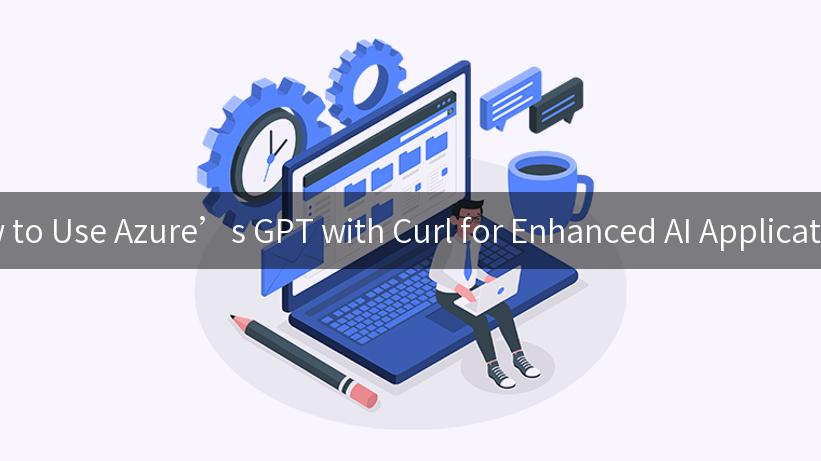
In the rapidly evolving landscape of artificial intelligence, Azure’s GPT (Generative Pre-trained Transformer) offers a powerful tool for developing sophisticated AI applications. Leveraging Azure’s infrastructure, developers can harness the capabilities of GPT models to build applications that are not only intelligent but also scalable and secure. This article will guide you through using Azure’s GPT with Curl, providing insights into AI safety, the open platform, API runtime statistics, and more.
Understanding Azure’s GPT
Azure’s GPT is part of the Azure OpenAI Service, which provides RESTful APIs for interacting with the OpenAI models hosted on Microsoft’s Azure cloud platform. This integration allows developers to take advantage of Azure’s robust infrastructure, ensuring high availability and security for AI applications.
Key Features of Azure’s GPT
- Scalability: Azure’s cloud infrastructure can handle millions of requests per day, making it suitable for large-scale applications.
- Security: Azure offers advanced security features to protect data and ensure compliance with industry standards.
- Flexibility: Developers can customize the GPT models to suit specific needs, enhancing the versatility of the AI solutions.
Using Curl with Azure’s GPT
Curl is a command-line tool that allows you to interact with web servers using various protocols, including HTTP and HTTPS. It’s a convenient way to make API requests, and when combined with Azure’s GPT, it becomes a powerful tool for AI application development.
Setting Up Your Environment
Before you can start using Curl with Azure’s GPT, you need to set up your environment:
- Azure Subscription: Ensure you have an active Azure subscription.
- API Key: Obtain your API key from the Azure portal. This key is required to authenticate your requests.
- Curl Installation: Install Curl on your system if it’s not already available.
Making API Requests with Curl
Once your environment is set up, you can start making API requests to Azure’s GPT using Curl. Here is a basic example of how to send a request:
curl -X POST "https://api.openai.azure.com/v1/completions" \
-H "Content-Type: application/json" \
-H "Authorization: Bearer YOUR_API_KEY" \
-d '{
"model": "text-davinci-003",
"prompt": "Once upon a time",
"max_tokens": 100
}'
In this example, replace YOUR_API_KEY with your actual API key. The request uses the text-davinci-003 model to generate a completion for the prompt “Once upon a time”.
Parsing the Response
The response from the API will be in JSON format, containing the generated text and other metadata. You can parse this response using any JSON library in your preferred programming language to extract the information you need.
AI Safety in Azure’s GPT
AI safety is a critical consideration when developing applications with Azure’s GPT. Ensuring that AI systems operate securely and ethically is paramount to building trust with users and stakeholders.
Key Aspects of AI Safety
- Data Privacy: Protecting user data is essential. Azure provides tools and policies to ensure data is handled securely.
- Bias Mitigation: Azure’s GPT includes mechanisms to reduce biases in AI models, promoting fairness and inclusivity.
- Robustness: Ensuring that AI models behave reliably under different conditions is crucial for maintaining safety.
Azure’s commitment to AI safety is reflected in its continuous efforts to improve model transparency and accountability.
Azure’s Open Platform
Azure’s open platform approach allows developers to integrate a wide range of services and tools, enhancing the capabilities of AI applications. This openness fosters innovation and collaboration, enabling developers to build more advanced solutions.
Benefits of Azure’s Open Platform
- Interoperability: Seamlessly integrate with other Azure services and third-party tools.
- Flexibility: Customize solutions to meet specific business needs.
- Community Support: Access a vast community of developers and resources to accelerate development.
APIPark is a high-performance AI gateway that allows you to securely access the most comprehensive LLM APIs globally on the APIPark platform, including OpenAI, Anthropic, Mistral, Llama2, Google Gemini, and more.Try APIPark now! 👇👇👇
API Runtime Statistics
Monitoring API runtime statistics is crucial for optimizing the performance of AI applications. Azure provides comprehensive analytics tools to track API usage and performance metrics.
Key Metrics to Monitor
- Request Latency: Time taken to process a request. Lower latency is desirable for real-time applications.
- Error Rates: Frequency of errors in API requests. Identifying and addressing errors can improve reliability.
- Throughput: Number of requests handled per second. High throughput indicates efficient performance.
Azure’s dashboards provide real-time insights into these metrics, allowing developers to make data-driven decisions to enhance application performance.
Enhancing AI Applications with Azure’s GPT
By leveraging Azure’s GPT and Curl, developers can create AI applications that are both powerful and efficient. The combination of Azure’s infrastructure and Curl’s simplicity offers a streamlined approach to building and deploying AI solutions.
Use Cases of Azure’s GPT
- Natural Language Processing: Enhance chatbots and virtual assistants with advanced language understanding.
- Content Generation: Automatically generate content for blogs, articles, and marketing materials.
- Data Analysis: Use AI to analyze and interpret large datasets, uncovering insights and trends.
Conclusion
Azure’s GPT, combined with Curl, offers a robust platform for developing AI applications that are scalable, secure, and efficient. By understanding the nuances of AI safety, leveraging Azure’s open platform, and monitoring API runtime statistics, developers can build solutions that meet the demands of modern AI applications. Whether you’re developing a chatbot, generating content, or analyzing data, Azure’s GPT provides the tools you need to succeed in the AI landscape.
Table: Comparison of AI Platforms
| Feature |
Azure GPT |
Competitor A |
Competitor B |
| Scalability |
High |
Medium |
High |
| Security |
Advanced |
Basic |
Advanced |
| Flexibility |
Customizable |
Limited |
Customizable |
| Community Support |
Extensive |
Moderate |
Extensive |
By comparing Azure’s GPT with other platforms, it’s clear that Azure offers a comprehensive set of features that are well-suited for developing cutting-edge AI applications.